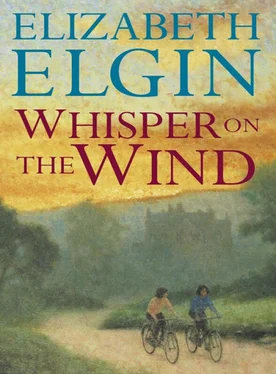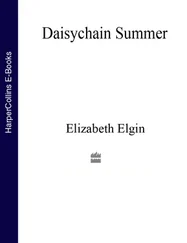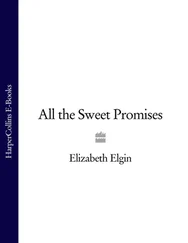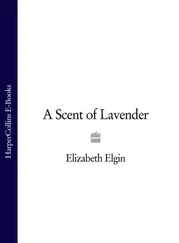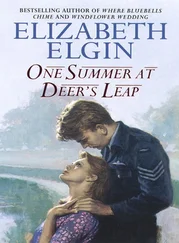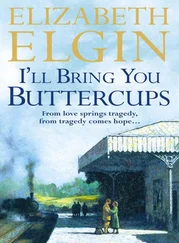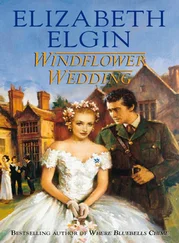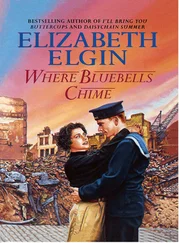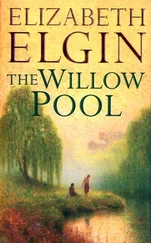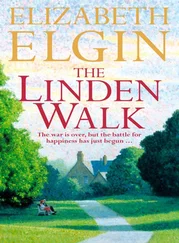But at least it would be a means to an end, Roz considered, reluctant to leave the warmth of the kitchen. Ridings was almost a farm now, and she was a farm-worker in a reserved occupation and for that she must be grateful. She could see the war out at home, which was more than most eighteen-year-olds could even begin to hope for.
‘Oops! Sorry, Polly,’ she gasped, almost colliding with the slight, grey-haired woman who stood in the doorway. ‘Didn’t see you! Gran will tell you the news.’
‘And what in the name of goodness was all that about?’ Polly Appleby put down the brown paper carrier-bag which held polishing cloths, pinafore and slippers. ‘Rush, rush, rush, that one. Never a minute to spare. Where’s she off to now?’
‘The letter came.’
‘Oh, aye? It’s all right, then?’
‘It’s all right. They’re not going to call her up.’
‘Never thought they would.’ Polly filled the kettle and set it on the stove top. ‘Stands to reason, don’t it? I suppose she’s away to tell Jonty Ramsden?’
‘To tell Mat, actually. It’s good of Mat to help out with the ploughing and such-like. He hasn’t got the time, really, and he certainly doesn’t have the men. He’s got his own farm to run and there’s only Jonty to help him.’
‘There’s Grace. Works like a man, Grace Ramsden does. And Mat Ramsden’ll do all right out of your parkland – or so talk has it.’ She held her hands to the fire. ‘But you’ll not be interested in village talk.’
Only Polly spoke to Hester Fairchild as an equal. Polly had always been there; had been a housemaid at Ridings when Hester Fairchild came there as a bride, all those years ago.
She stooped to throw a log on the fire, sending white ash falling into the hearth, and red sparks darting up the chimney.
‘My, but that’s a frosty fire, ma’am. Be a cold ‘un tonight.’
‘The village?’ Hester took cups and saucers from the dresser. ‘What are they saying now?’
‘Well, talk has it that Mat Ramsden has asked the War Ag. for a landgirl. All Alderby knows. If he’s to go into partnership with you, they reckon he’s going to need all the help he can get.’
‘Alderby seems well informed, as usual,’ Hester observed. ‘And it won’t be a partnership, exactly. But I’m told I must plough up my parkland and grow food on it, and since my acres are next to his, it seems sensible to work them between us as best we can.
‘That’s why Roz applied for exemption. She might as well work on her own land as join the Land Army and work on someone else’s. I was beginning to think they wouldn’t allow it. It seemed such a straightforward solution that I was certain they’d tell her she had to join up, or go into munitions, or something.’
‘Hmm.’ Polly laid traycloth and cups on the silver-handled tray for, war or no war, even a cup of tea was taken in a civilized manner at Ridings. ‘And there’s talk that the War Ag. is paying farmers well for putting grazing land under the plough. Two pounds an acre subsidy, I heard tell they’d get. That’ll be more than four hundred pounds, won’t it?’
‘Four hundred and eighty.’ The information was tersely given. ‘There are two hundred and forty acres, to be exact.’ Drat the village for its nosiness and drat it again for being right for once. ‘And one landgirl won’t be enough, Mat told me. He’ll need Roz, too, and a good ploughman. Oh, there’ll be enough for the girls to do; just for them to take over the milk-round will be a load off Grace Ramsden’s mind.
‘But my land must be ploughed up, and soon. Those acres have been down to grass since ever I can remember and the sooner they’re opened up to the weather the better.’
‘I’ll grant you that, but a good ploughman is as rare as hen’s teeth these days,’ Polly brooded. Stood to reason, didn’t it? There’d been little money in farming between the wars and small use growing crops that nobody wanted to buy. Ploughs had lain rusting these last twenty years; ploughmen had abandoned their skills and gone to the towns.
‘I know that, Polly, but we’ll manage between us. We’ll have to. If that parkland isn’t under cultivation by March, the War Ag. will take it over for the duration. It’s as simple as that.’
‘But they can’t do that, ma’am. Isn’t theirs to take!’
‘They can, and they will. The War Ag. can take my land just as any government department can take anything it wants. They’d fling the Defence of the Realm Act at me and if I protested I’d be unpatriotic.’
‘And lose your land, whether or no.’
‘Exactly. So let’s hope Mat gets his ploughman and his landgirl.’
‘Aye.’ Polly settled herself in the fireside rocker, stirring her tea, gazing into the hearth. Just the one fire burning here, now, yet when she’d been a young under-housemaid here, she could have counted five fires at least burning from morning till night, and fires in the bedrooms, too. But coal was a pound a ton then, and logs for the taking from the estate. And the Master had been alive and Miss Roz’s mother a slip of a girl.
Ridings had been the place to work at the turn of the century, Polly considered. Far better than being in service at Peddlesbury, ugly old Victorian pile that it had been. Built on wool and inherited coal money and them as lived there then not real gentry, like the Fairchilds. Now Peddlesbury was an aerodrome and Ridings not the house it used to be.
But things had been different before the Master was killed. And before that fire. Twenty-four bedrooms there’d once been and three housemaids and a cook and scullery-maid and a footman. Aye, and a parlourmaid and a housekeeper as well as the outside staff.
But that was another life it seemed, and now she, Polly, lived in one of the gate lodges and came each day to ‘do’. She had been a part of a life that was long gone and because she still remembered the Master and Miss Janet, she was as much a part of Ridings as the woman who owned it and the granddaughter who would one day inherit it, and the worry of it.
‘You’re quiet all of a sudden. Penny for them?’
‘Oh, they’m worth more than a penny,’ Polly returned gravely. ‘Oh my word, yes. A lot more than that.’
‘Then I’d best not ask. But sometimes, Polly, I wonder. Have I been wise, urging this exemption on Rosalind? Often, I think she spends too much time with me. Might it not have been better if I hadn’t tried so hard to keep her here – if she’d been left free to join the forces, seen a bit of life outside Alderby St Mary?’
‘It might have been, but like you said, she just might have opted to join the Land Army and been sent to work on some other farm.’
‘I know. But what do you mean, some other farm? I don’t have a farm, Poll Appleby.’
‘You don’t? Then what would you call all those acres you’ve got to cultivate? Seems to me that whether you like it or not you’re up to the neck in farming for the duration, and so is Miss Roz. And she’s as well staying at home and looking after her inheritance as she is joining the Air Force or the Army.’
‘Inheritance? A few hundred acres of parkland and all that remains of a house? And the parkland will go back to grass when the war is over and be left idle again. Some inheritance! And it’s all I have to leave her. That, and her name,’ she whispered bitterly.
‘Now don’t get yourself upset, ma’am. I know it’s the time of year, but soon it’ll be Christmas and afore you know it there’ll be a new year to look forward to.’
The time of year. December, when everything awful happened, Hester brooded. They’d taken Martin from her in December and it had been December when Ridings caught fire, the lanes so blocked with snow that the horses pulling the fire engine made heavy going and arrived almost too late.
Читать дальше
